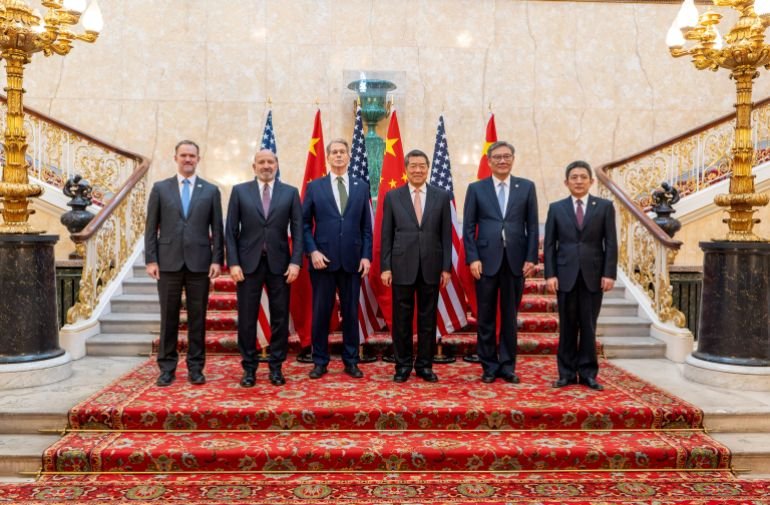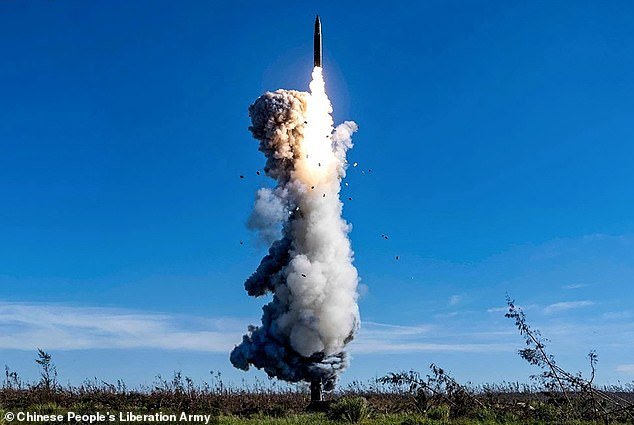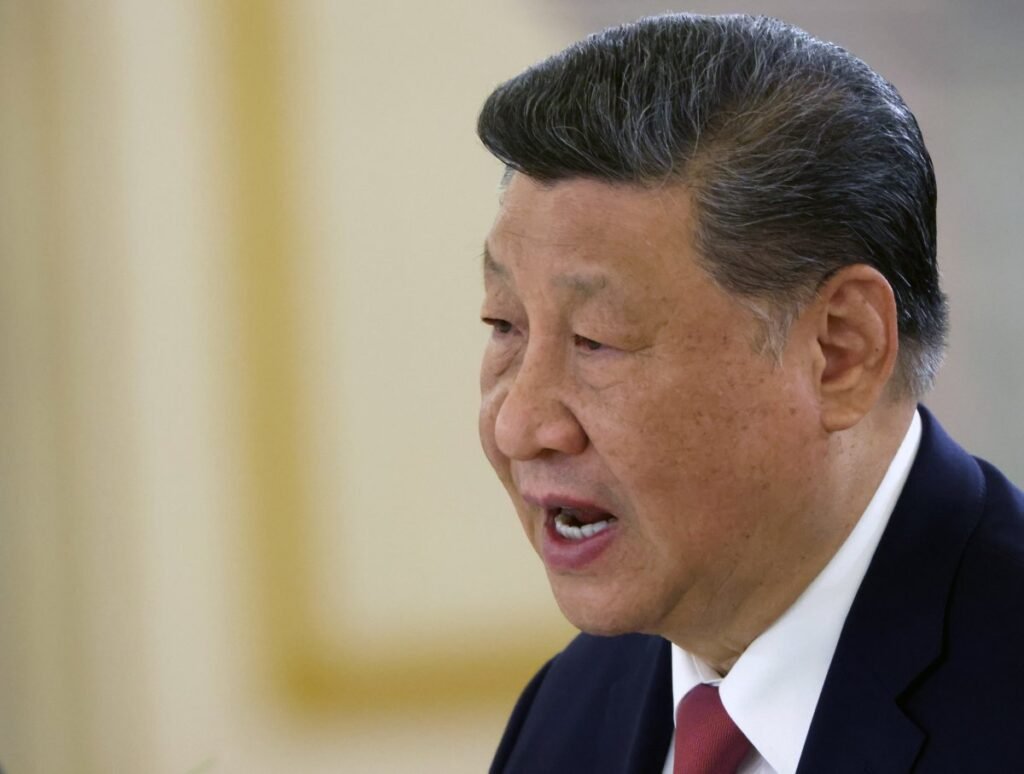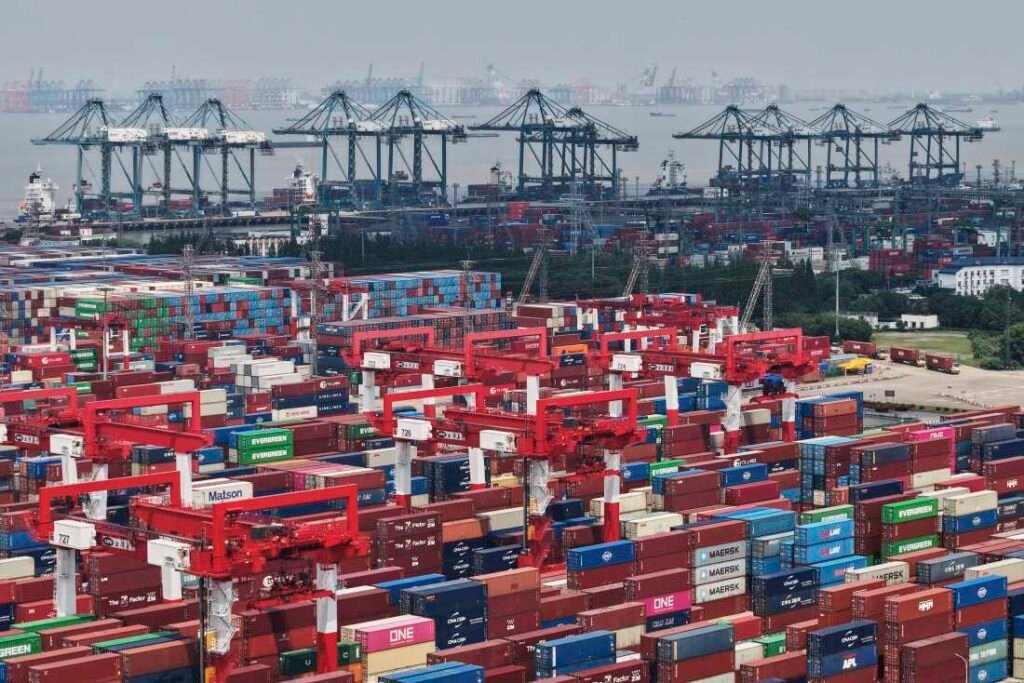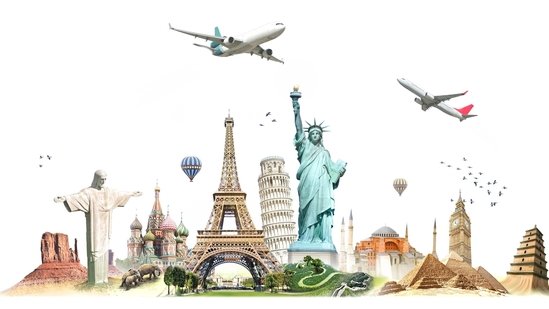Donald Trump’s leadership style, at once volatile and commanding, could be both an obstacle and an opportunity for Beijing.
There might be no better example than the recent events involving the Middle East: After nearly two weeks of traded attacks between Israel and Iran, the President made the controversial decision to authorize U.S. strikes on three Iranian nuclear facilities, risking prolonged American involvement in yet another unpopular war in the Middle East. Then just two days later, Trump announced that he had brokered a ceasefire between Israel and Iran—one that almost collapsed but then appeared to hold as Trump let off an expletive-filled rant against both countries, warning Israel not to drop more bombs.
Trump even boasted of the benefits his truce would bring to other countries.
“China can now continue to purchase Oil from Iran,” Trump posted on Truth Social on Tuesday. “Hopefully, they will be purchasing plenty from the U.S., also. It was my Great Honor to make this happen!”
Trump’s comments came after Secretary of State Marco Rubio said on Fox News on Sunday that he had encouraged China to advise Iran not to close the Strait of Hormuz—the narrow waterway through which much of the world’s oil trade flows through and which Iran had threatened to close in response to U.S. intervention. China relies on crude oil imports from the Middle East, particularly Saudi Arabia, which pass through the strait, but is also the largest importer of Iranian oil, which is under economic sanctions by the U.S.
Reports suggested that Trump’s post indicated possible sanctions relief, but the White House later clarified to media outlets: “The president was simply calling attention to the fact that, because of his decisive actions to obliterate Iran’s nuclear facilities and broker a ceasefire between Israel and Iran, the Strait of Hormuz will not be impacted, which would have been devastating for China.”
China, unlike the U.S. with Israel, made no indication that it would step in to militarily assist its longtime friend Iran. Instead, the Asian nation, which has in recent years tried to position itself as a global peacebroker, made fervent calls for deescalation, verbal condemnations of Israel’s attacks, and urged the U.S. not to get involved. Ultimately, though, China’s offers to mediate were not taken up, and instead it was—at least according to himself—Trump’s strongman stance that managed to bring an end for now to the hostilities between Israel and Iran.
But experts tell TIME it was no surprise to anyone, including China, that only the U.S. could have brought an end to the war.
“It is not surprising that Israel signs a cease-fire when the United States applies real pressure, because they could not pursue any conflict, in Iran or in Gaza, without the continual supply of weapons, ammunition, and military tech from the United States,” says William Figueroa, an assistant professor of international relations at the University of Groningen. “When the person signing the checks says they really mean it, you listen.”
While China has deepened its investment in the Middle East over the years and developed close economic ties with Iran while maintaining ties with Israel, it does not hold the same level of either economic or political leverage over either country as the U.S.
“Iran sees China more as an economic partner than a security ally,” Lin Jing, a research fellow at the Middle East Institute at the National University of Singapore, tells TIME.
China has also offered sharp criticisms of Israel’s bombardment of Gaza, and of its attacks on Iran, which would have made it unlikely for Israel to accept it as a mediator. China seemed to know this, Figueroa says, and was instead pushing the U.S. to exert its influence over Israel to end the war.
Still, experts say, China will learn from how the war and its ceasefire played out, if only to reinforce its view of the U.S. as an unpredictable power.
And Rubio will meet next week with foreign ministers from Australia, India, and Japan to build on “momentum to advance a free, open, and secure Indo-Pacific”—language that suggests the U.S. wants to return focus to countering the regional threat from China.
Strikes reinforce Chinese view of U.S. instability
China already saw the U.S. under the Trump Administration as an unstable partner, particularly after Trump slammed the world with staggering tariff rates before abruptly reversing course.
Trump’s tariffs “were accelerating a trend of Chinese businesses looking more and more overseas,” Figueroa says. China exports heavily to U.S. markets, and Trump’s tariffs on China—which rose to a prohibitive 145% before being temporarily lowered to 30%—left many Chinese and American businesses in a state of uncertainty.
Chinese President Xi Jinping has made attempts to strengthen trade relations with other countries in recent months, assuring the world of its stability as a trading partner in contrast with the U.S. In a meeting with Singaporean Prime Minister Lawrence Wong this week, Xi pointed to “the current complex and turbulent international situation” to emphasize the need for closer ties.
The Middle East too has become an important market and site of diplomacy for China. Figueroa says U.S. backing of Israel “will only intensify the trend of China leaning towards the Arab states and linking regional instability to the United States and Israel.”
That the U.S. intervened to strike Iranian nuclear facilities, potentially upending decades of global nuclear diplomacy, “reinforces [China’s] view of the U.S. as a disruptive power, intent on setting rules, but not following them when inconvenient,” Lin says.
Isaac Kardon, a senior fellow for China studies at the Carnegie Endowment for International Peace, told the South China Morning Post that the U.S. strikes on Iran might ring alarm bells for China. American escalation showed China that “massive use of force actually is ‘on the table’ and may be employed very quickly and even impulsively by a leader who is showing himself to be less gun-shy and more risk-acceptant than his first term,” Kardon said.
China’s approach to the Israel-Iran war showed that it wanted to “avoid direct confrontation with the U.S.,” Lin, the Singapore-based researcher, adds. While China urged “countries with special influence on Israel” not to fan the flames of the war, it did not explicitly name the U.S. But having seen that the U.S. is willing to engage militarily, China may recalculate its own foreign policy approach, including over Taiwan, Lin says.
“China may also look a bit more skeptically at Trump’s efforts to negotiate, having seen where negotiations got Iran,” Figueroa says.
At the same time, Lin says protracted U.S. involvement in the Middle East, which may result as the U.S. aims to enforce the ceasefire between Tehran and Tel Aviv while reentering diplomatic talks with Iran and pushing Israel to end its war in Gaza, could advantage China “by drawing its attention away from Asia.”
“U.S. power is finite—political bandwidth and strategic bandwidth is also limited,” Mohammed Alsudairi, an international relations lecturer at the Australian National University, told the Washington Post. “The U.S. could be dragged into a quagmire, not of its own making.”
And Beijing would support such a quagmire, Kardon told SCMP, as it would “keep U.S. naval and air forces tied up in Western Asia instead of in the Western Pacific where China’s strategic attention is concentrated.”
Uncertainty around Taiwan
Tensions around Taiwan have been on the rise in recent years. Beijing views Taiwan as part of China and has stepped up political and military pressure towards its reunification with mainland China. A majority of countries do not recognize Taiwan as an independent country, including the U.S., although the U.S. opposes the use of force by Beijing to claim Taiwan and provides Taiwan with defensive military capabilities.
Taiwan’s Defense Minister Wellington Koo said Thursday that the island is determined to defend itself, after outlining annual military exercises for July. The defense ministry reported earlier that day another Chinese “joint combat readiness patrol” around Taiwan, involving warships and warplanes. China previously sent 46 military aircraft over the Taiwan Strait in the 24 hours before last Friday morning, according to Taiwan’s defense ministry, after U.S. lawmakers met with Koo in a rare publicly disclosed meeting.

On the morning of June 20, Taiwan detected a spike in Chinese movements near the island, after China criticized a British navy vessel patrolling the Taiwan Strait for the first time since 2021.
“No matter what they say or do, they cannot change the fact that Taiwan is part of China,” Chinese foreign ministry spokesperson Guo Jiakun said.
China’s defense ministry said on Thursday that its military drills are “necessary to defend national sovereignty and territorial integrity, and a stern warning to ‘Taiwan independence’ separatists and external interference.” The ministry added that U.S. support of Taiwan could “mislead Taiwan into the flames of war.”
Qi Dongtao, a senior research fellow at the East Asian Institute at the National University of Singapore, tells TIME that Trump’s approach to China makes it difficult to know whether the U.S. would militarily intervene to defend Taiwan. Former President Joe Biden moved the U.S. from “strategic ambiguity”—the policy of deliberately not clarifying whether the U.S. would militarily defend Taiwan—to “strategic clarity,” Qi says. On multiple occasions, including in an interview with TIME last year, Biden said he wouldn’t rule out “using military force” to defend Taiwan in the case of an invasion.
But Trump has moved the U.S. position back towards uncertainty.
Trump is, by and large, “not ideologically driven,” Qi says. Rather, his approach is “transactional.”
Trump Administration officials have also demanded that Taiwan increase its defense spending to as much as 10% of its gross domestic product, as part of an overall push for the U.S.’ partners to spend more on their own defenses.
Alexander Gray, a senior fellow at the Atlantic Council and former chief of staff of the National Security Council during Trump’s first term, told Nikkei Asia that Israel’s aerial campaign was “the ultimate example of America First regional burden sharing”—signalling that the Trump Administration expects its regional partners to do a bulk of the fighting.
“For Trump, China is mainly an economic threat,” Qi adds. For the most part, “Trump doesn’t want to fight a war with China.”
World still views China as a security concern
NATO Secretary-General Mark Rutte said Monday that NATO’s Indo-Pacific partners—which includes Japan and South Korea—were “very, very aware” of China’s “massive” military expansion, pointing to several Chinese defense companies that rank among the top arms makers globally. He warned that Chinese military expansion could also impact European security.
“They don’t do this only because they want to have nice parades in Beijing. I guess it’s there for a reason,” Rutte said. He pointed to “the situation in Taiwan” and cautioned that should China “try anything with Taiwan,” Beijing could rely on Russia to “keep us busy here” in Europe.
Rutte’s comments signal that the West still views China mainly as a geopolitical security threat, even as Beijing tries to warm ties with Europe.
“We firmly oppose NATO using China as an excuse to expand eastward into the Asia-Pacific and urge NATO to reflect on its own behaviors, change course, and contribute more to global security and stability,” Chinese defense spokesperson Senior Colonel Zhang Xiaogang said at a regular press conference on Thursday.
“China wants to be seen as a neutral player,” Lin says. But the U.S. is still “the dominant power in the region” and by most counts the world, whereas China is a “relatively recent entry” diplomatically and economically to the Middle East.
Even with some upgraded diplomatic ties in the Middle East, China is viewed mainly as an economic player, Lin adds. That informs China’s need to balance its interests in and ties to several countries at once. If China were seen as “too passive or too close to Iran,” for example, “it could limit China’s Belt and Road ambitions in the region.”
With other nations too, China is seen as a major economic player, but taken with a grain of salt with regards to diplomacy.
“It is clear that China is one of the largest trading partners, and we have a few issues like climate change where we cooperate, but every relationship requires a dose of realism,” European Union foreign policy chief Kaja Kallas told reporters Monday after a meeting between E.U. foreign ministers. “China is the key enabler of Russia’s war against Ukraine. It carries out cyberattacks. It interferes in our democracies. It uses coercive trade practices. These aspects strain our relationship and make it increasingly hard to continue as before.”
Even in the economic arena, China’s relations have faltered. The E.U. earlier this month cancelled a flagship economic meeting with China over ongoing trade disputes.
U.S. sanctions have spurred collaboration between China, Russia, Iran, and North Korea, including through setting up international collaborative organizations like BRICS as alternatives to a U.S.-led international order. But the global influence of these organizations is hampered by a lack of “sufficient critical mass,” Stephen Olson, a visiting senior fellow at the ISEAS Yusof Ishak Institute, told Nikkei Asia. In another blow to China’s push to become a regional leader, India on Thursday rejected signing a joint statement facilitated by the Shanghai Cooperation Organization—one such grouping set up by China and Russia to counter U.S. influence.
Israel-Iran conflict was “a stage” for U.S. and China’s contrasting approaches
China’s continued policy of non-involvement contrasts sharply with what the world has seen from the U.S. in the past week—not to mention decades of its interventionist approach before Trump—which has allowed China to make “great strides particularly in the Global South,” Lin tells TIME. That’s intentional, Lin says, lest China lets itself become “indistinguishable from the hegemonic powers it criticizes.”
“This conflict between Iran and Israel has somehow become a stage for China and the U.S. to showcase contrasting visions of global leadership,” Lin says. “The U.S. has demonstrated its military capabilities, its commitment to allies, and its influence in crisis management. But these are not the metrics by which China measures its global role.”
Where the U.S. wielded threats and weapons, China offered words.
“China’s main stake is stability,” Lin says. “History shows that great power involvement often worsens long-term instability. China does not aspire to become a world policeman, nor does it believe any single country should assume that role.”

